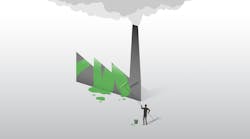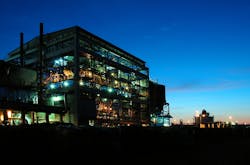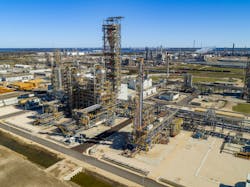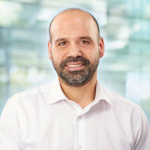Article Updated: Aug. 14, 2023 at 9:41 a.m. EST
Corporate sustainability claims are facing their moment of truth. In February, Shell Plc joined a growing list of organizations accused of embellishing their environmental wins. A climate group called Global Witness filed a complaint with the Securities and Exchange Commission (SEC), alleging the company engaged in greenwashing by classifying natural gas as renewable energy.
Investors, regulators and buyers have certainly upped the ante for carbon transparency, leaving chemical companies with the challenge of validating their environmental statements. Increasingly, chemical manufacturers are seeking third-party certifications to back their carbon-reduction statements. When it comes to material inputs, ISCC Plus is one of the more common certifications that chemical firms are pursuing.ISCC stands for International Sustainability and Carbon Certification, a system designed to verify the use of sustainable, bio-based and recyclable materials in the supply chain. The ISCC Plus designation is a voluntary standard for markets and sectors not regulated by the European Union (EU) Renewable Energy Directive II. This includes plastics, chemicals, food and feed markets. It also applies to biofuels outside the EU and the United Kingdom.
The global standard is based on the mass-balance accounting approach that allows chemical manufacturers to use a mix of fossil fuels and recycled or renewable materials in their products. It’s a preferred method of sustainable accounting for the chemical industry because it’s designed to trace the flow of materials through a complex value chain.
As ISCC explains, physical segregation of recycled content is often impractical since chemically recycled or bio-based feedstocks are typically blended in the manufacturing complex. The mass balance approach makes it possible to track sustainable characteristics of a material in the value chain and attribute it based on verifiable bookkeeping.
Chemical manufacturers say the standard helps them meet market demand for more sustainably sourced products. Even so, the process is not always straightforward. The ISCC website includes hundreds of pages of guidance documents. The process involves sophisticated bookkeeping methodologies and internal training to ensure employees understand the steps and rules.
Why Pursue ISCC Plus Certification?
For Brazilian polyolefins producer Braskem, ISCC Plus certification aligns with the company’s commitment to a carbon-neutral, circular economy, says Susan Gluodenis, Braskem’s director of global quality. The company has a goal of producing 1 million tons of bio-based plastics and 1 million tons of plastics with recycled content by 2030. The company aims to sell 300kt of plastics with recycled content by 2025. The ISCC Plus designation helps Braskem demonstrate to customers its commitment to meeting sustainability targets, Gluodenis says.
“2050 is still far away, but we must start now, even with smaller steps. “There is not enough sustainable raw material on the market to immediately replace 100% of our feedstock. ISCC Plus provides excellent tools to start with a lower amount of sustainable material, while compositions can be changed over time to reflect the expected increasing availability of sustainable feedstock to meet our production requirements.” -- Dirk Roller, vice president of global quality and reference laboratories, Orion Engineered Carbons.
Braskem first received ISCC Plus trading certification in 2021, allowing the company to sell its sustainable products. In January, the company received ISCC Plus certification for all five of its U.S. polypropylene production facilities.
Orion Engineered Carbons received ISCC Plus certification in November 2022 for multiple grades of carbon black, a pelletized or powder material used in high-performance applications, including tires. The Spring, Texas, subsidiary of Orion S.A., Luxembourg, began its pursuit of ISCC Plus certification in 2022 to increase visibility of new products derived from sustainable material, says Dirk Roller, vice president of global quality and reference laboratories for Orion.
Orion uses oil derived from waste streams, such as pyrolysis oil from end-of-life tires and a byproduct of wood pulp manufacturing. The certification provides Orion with guidelines to gradually bring sustainable products to market, in line with its goal to reach net-zero greenhouse gas emissions by 2050.
“2050 is still far away, but we must start now, even with smaller steps,” emphasizes Roller. “There is not enough sustainable raw material on the market to immediately replace 100% of our feedstock. ISCC Plus provides excellent tools to start with a lower amount of sustainable material, while compositions can be changed over time to reflect the expected increasing availability of sustainable feedstock to meet our production requirements.”
Mesbah Sabur, co-founder and CEO of Circularise, a company that provides certification traceability solutions, concurs, saying the ISCC Plus mass-balance methodology is a first step toward more extensive conversion to sustainable feedstocks.
“There will be a tipping point, and it might be different per organization and their skill and type of manufacturing processes, but once this tipping point is reached, it becomes much more realistic to step away from a mass-balance system,” he explains.
Avoiding Confusion With Conversion
The certification process requires planning and collaboration. As Sabur explains, the ISCC guidance includes 200-plus pages of documentation. The certification also involves independent audits, which means organizations must keep detailed records. The mass-balance approach becomes even more complex when allocating amounts of sustainable materials to finished products.
For example, if a process has inputs of 50% sustainable and 50% virgin material, then the products produced will be certified as a 50-50 split of materials. But mass balance includes a credit system that allows organizations to allocate a larger proportion of sustainable material to some products, while lowering the content they claim in others.
Companies with rudimentary accounting capabilities or minimal internal resources dedicated to the program can quickly become overwhelmed. “A lot of the companies that we encounter, they've set up their initial bookkeeping with some sort of an Excel sheet, and then business starts booming and they have more and more transactions, and they realize this is not going to work,” Sabur says. Circularise has developed a platform designed to automate mass-balance reporting and help chemical producers navigate the ISCC Plus process, Sabur adds.Cepsa Química, the chemicals division of Spanish petroleum company Cepsa, has received ISCC Plus certification for its circular phenol and acetone products as well as renewable and circular linear alkylbenzene (LAB). For example, the company is substituting some of the benzene produced from crude oil in its refineries with benzene purchased from suppliers that use recycled plastics, used cooking oil or wood as a feedstock.
Having a leader dedicated to the process is an important first step toward achieving ISCC Plus certification, Sabur says. At Cepsa, that person is Arturo Castro Ramirez, the company’s product stewardship technician. Castro Ramirez attended a two-day training session hosted by ISCC in Germany to learn the basics of the program. He administers the training internally to employees responsible for various tasks to complete the program requirements. These functions include managing the mass-balance bookkeeping, forwarding the sustainability declaration and calculating the conversion factor (sustainable inputs vs. outputs).
“The key point in mass balance is the conversion factor,” Castro Ramirez explains. “For example, here at Palos de la Frontera (Spain), we start our process with benzene and propylene that is oxidized and then we obtain phenol and acetone. So, there is a ratio between how many tons of benzene you need to produce for, say, 1 ton of sustainable phenol.”
The conversion factor is critical because plants must prove during the external audit that they are not selling more sustainable product than the amount of sustainable raw material they have received, Castro Ramirez adds.
Orion also trained employees on ISCC requirements related to their specific work functions. The company initially considered using outside consultants to support it during the application process, but experts were booked for weeks and couldn’t meet the company’s three- to six-month timeline for certification, Roller says.
Like Castro Ramirez, Roller assumed the role of project lead and onboarded the Orion team on the ISCC process. Roller consulted with an ISCC-approved auditor to address questions during the preparation process. “Although we only had a few hours support, this helped us to understand the basic things and to get immediate questions answered,” he says.
Phillips 66 received ISCC Plus certification at its Sweeny refinery in Old Ocean, Texas, in mid-2022 to process pyrolysis oil from hard-to-recycle waste plastics into cracker feedstock to produce circular polymers.
The company relied on scientists and engineers at its research center in Bartlesville, Oklahoma, to analyze samples of feedstocks to ensure they were compatible with process units, says Brandon Polander, an emerging energy technology specialist at Phillips 66. Refinery personnel also evaluated the refining processes to identify any potential engineering concerns prior to pursuing ISCC certification at its facilities, he adds.
Plan for the Unexpected
At Braskem, the company encountered some unforeseen challenges when calculating the conversion factor in its U.S. plants. The company, which already had received certifications at its Germany and Brazil facilities, tried to apply the same calculation formula at the five U.S. operations, Gluodenis says. But the U.S. facilities had different configurations in their processes that that the company had to factor into the equation, making the certification effort more complex. The company had to build different models, work with the plants’ engineering teams, and consult with the auditor who evaluated previous ISCC Plus-certified plants within Braskem to accurately calculate the conversion factor, Gluodenis elaborates.
“There are always some exceptions or edge cases that you need to solve. “You’re not going to decide to get certified and be ready in two months. It’s a process.” --Mesbah Sabur, co-founder and CEO, Circularise
The company did not use outside consultants because the organization already had significant internal experience handling various types of certifications. “We have, on any given day, somewhere between 20 and 25 certifications within Braskem as a whole, so the five for the U.S. were added to the mix,” she explains. “So, we already had a good knowledge base within Braskem.”
Braskem’s experience is not unusual. “There are always some exceptions or edge cases that you need to solve,” says Sabur. “You’re not going to decide to get certified and be ready in two months. It’s a process.”
Understanding the process is among the top obstacles Sabur encounters when he meets with companies seeking ISCC Plus certification. He even sees it within large organizations. “We work with companies that generate more than a couple billion dollars of revenue a year, and there’s huge amounts of confusion within the organizations, within different departments,” he says.
Companies will ask questions about what they can or can’t do and how to execute the process, he says. Considering the sometimes-onerous nature of the program, Sabur recommends that organizations give themselves plenty of time to prepare for the certification process.
“Definitely start early, earlier than you might think otherwise and you might be comfortable with,” he says. “You will be much more prepared for the moment because there is quite a learning curve. It’s not a very simple thing to install in an organization.”
ISCC Plus and Mass Balance FAQs
What can be certified?
Under ISCC PLUS, all types of agricultural and forestry raw materials, biowastes/residues and fossil materials contributing to the circular economy and bioeconomy can be certified.
What are the different raw material categories under ISCC Plus?
- Bio Feedstocks – materials derived from virgin biomass products from industries such as agriculture and forestry.
- Circular Feedstocks – Reuse or recycling of waste materials at the beginning of the supply chain. Includes bio-circular products that are waste and residues of biological origin from agriculture, forestry and related industries, including fisheries and aquaculture, as well as biodegradable industrial and municipal waste, such as food.
- Renewable Feedstocks – Using renewable sources, such as wind and solar, to produce materials of non-biological origin. The input feedstock must not contain usable energy. The renewability of electricity can be proven via renewable energy obligations, renewable power purchase agreements or via a direct connection/ link of the processing unit with the respective unit producing renewable electricity.
How does mass balance work?
According to Circularise, the mass balance approach is a chain-of-custody model that allows chemicals and plastics operations to incrementally transition to using sustainable feedstocks without setting up separate production lines for sustainable products. The process is guaranteed by third-party certification, creating the need for bookkeeping and reporting throughout the supply chain.
How do you ensure mass balance material is accurately allocated?
As Circularise notes, organizations need a documentation and reporting system. They also need an independent third party to conduct an audit, including the certification of the bookkeeping system, materials used and reporting system to ensure the integrity of the material allocation process.
The organization must report the overall balance periodically to prove that output credits do not exceed the input credits for that bookkeeping period. “Credits for sustainable materials can then be allocated to an output material, as long as the net proportions of material characteristics are preserved. When materials are traded between companies they must be accompanied by a certificate for that material (a sustainability declaration), corresponding to its sourcing and a declaration of its sustainability profile,” Circularise notes on its website.





